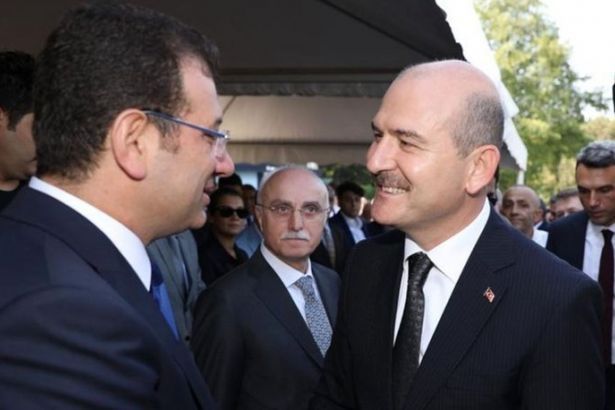Turkish gov’t bans donation campaigns of opposition municipalities

As Turkish President Recep Tayyip Erdoğan has launched a fundraising campaign to ‘‘fight against the novel coronavirus outbreak’’ on March 30, Turkey’s Ministry of Interior has immediately issued a circular on Tuesday, banning the donation campaigns initiated by the municipalities of main parliamentary opposition Republican People’s Party (CHP) for citizens in need during COVID-19 pandemic.
‘‘If you announce to start a campaign to collect aid without permission of the government or governorate, you actually attempt to form a new state and government,’’ Turkish Interior Minister Süleyman Soylu said and accused the main parliamentary opposition’s municipalities, including Istanbul and Ankara metropolitan municipalities, of ‘acting like a second government’.
Speaking about the blockade of donation bank accounts of the CHP municipalities to hinder the fundraising campaigns of the main parliamentary opposition, Turkish President Recep Tayyip Erdoğan also stated, ‘‘There is no point in attempting to form a state within the state. All campaigns will be carried out by the relevant units appointed by the Presidency.’’
Just after the CHP municipalities initiated donation campaigns to help citizens in need during COVID-19, Turkish President Recep Tayyip Erdoğan on March 30 has launched a campaign to collect donations from citizens in need amid novel coronavirus pandemic, announcing that he donated his seven-month salary for the government-led campaign.
Underlining that the Turkish government’s most important concern is to provide the continuity of the supply of basic necessities and to enable the continuity of production to support the exportation, President Recep Tayyip Erdoğan still insists on not to declare a strict lockdown despite the incrementally increasing cases and deaths due to COVID-19 across the country.
ISTANBUL AND ANKARA MUNICIPALITIES TO SUE TURKISH GOV’T FOR BLOCKING THEIR DONATION ACCOUNTS FOR COVID-19
Meanwhile, the CHP’s Istanbul and Ankara municipalities have announced that they will bring a lawsuit against the Ministry of Interior over the circular banning them from conducting donation campaigns to support citizens in need amid the novel coronavirus pandemic.
The Legal Consultancy Department of Istanbul Metropolitan Municipality informed that they will litigate to the Council of State for the circular’s annulment, adding that the municipality officials will also take the necessary judicial actions for the state-owned Vakıfbank, which has blockaded the donation bank accounts of the CHP municipalities, to reverse its move.
Addressing the certain articles of ‘Law for Metropolitan Municipalities’ allowing them to collect donations as their authority and privileges, the Legal Consultancy Department of Istanbul Metropolitan Municipality underlined that the circular issued by the Ministry of Interior along with the decision taken by the Governorate is contrary to law.
The Ankara Metropolitan Municipality has also made a similar statement, saying that municipal laws explicitly grant municipalities the right to collect aids, and therefore they will bring a lawsuit against the Interior Ministry’s unlawful decision at the Administrative Court.
It is known that Turkish President Recep Tayyip Erdoğan’s government has spent the public funds on luxury expenditures throughout its 18-year political power, as his presidential palace in the capital city of Ankara and his summer houses cost astronomic expenses against the public sources. The Presidency spent a budget of 1,648 million Turkish Lira ($252 million) in 2018, corresponding to a daily expenditure of $687,000, according to the data of Turkey’s Court of Accounts.
On the other side, the Unemployment Insurance Fund in Turkey has currently 131 billion Turkish Liras [~$20 billion]. Under normal circumstances, if the government put 15 million wageworkers on a salary based on net minimum wage for 3 months, the cost of this amount is 107 billion Turkish Liras [~$16 billion]. However, since the unemployment insurance fund is used to lend low-interest loans to the Treasury, there is no enough money in the fund.
As most of the Unemployment Fund has been transferred to the capitalists rather than being used for the workers under the rule of Justice and Development Party, at least $1,22 billion in 2017 and $1,38 billion were directly transferred to the capitalists under the pretext of incentives, occupational training, and active workforce programs.
For the first time in the history of Turkey’s Unemployment Fund, the revenues remained below the expenses last year with a deficit of 390 million TL [~$58,2 million] in April 2019.
At least 277 people lost their lives due to the COVID-19 pandemic in Turkey, while there is a total of 15,679 cases, including 979 in critical condition nationwide as of April 1, 2020.




